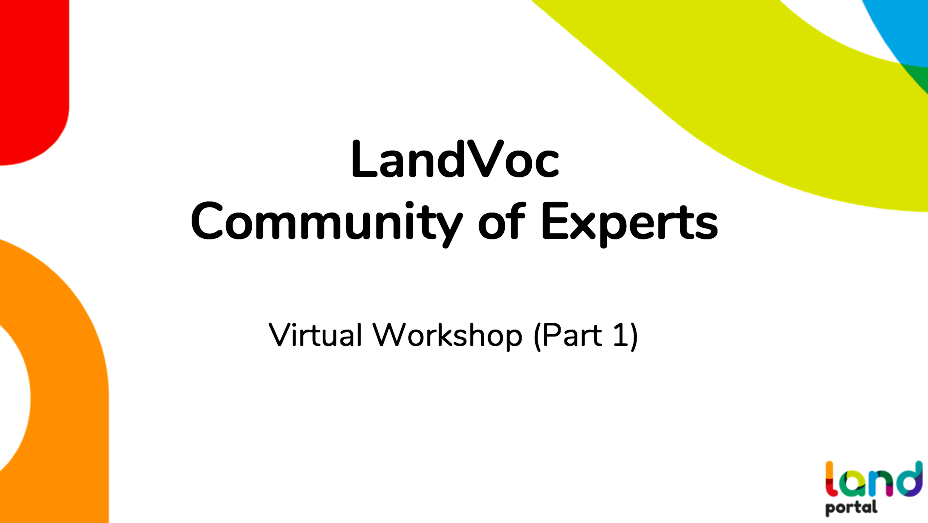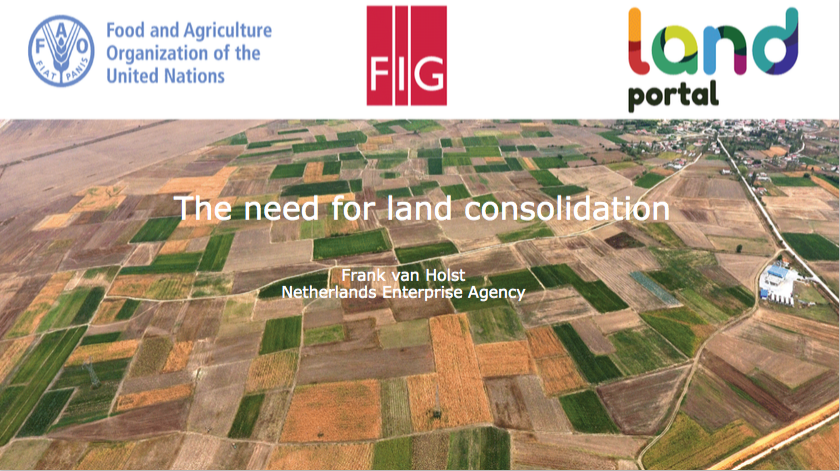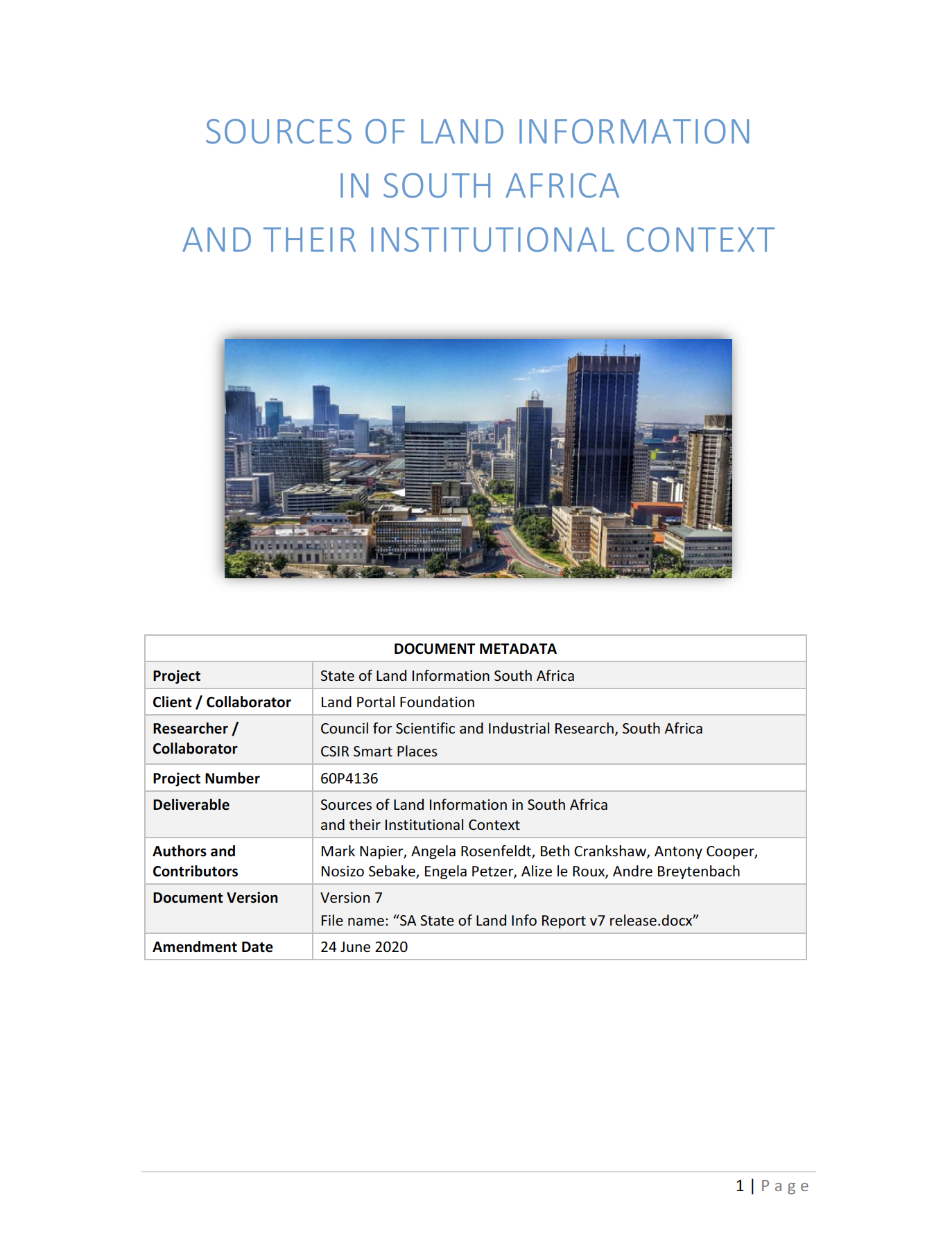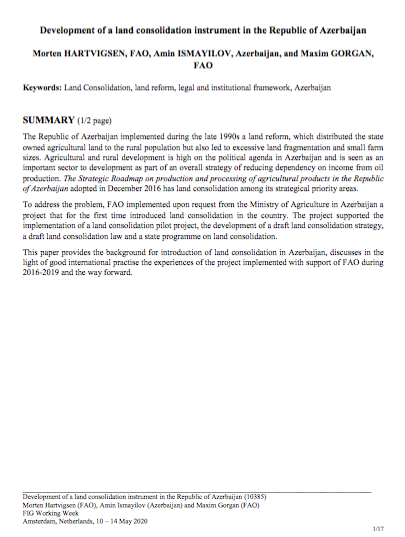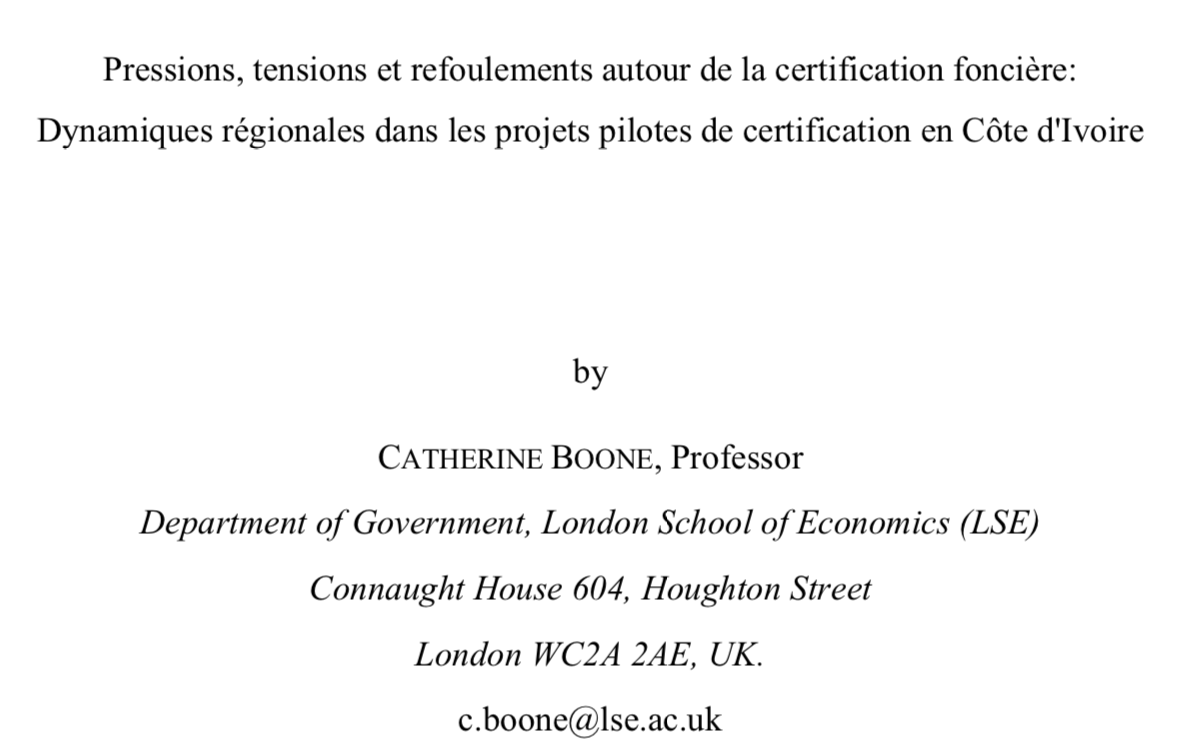LandVoc Community of Experts Workshop Presentation
This document sums up part of the presentations given during the first part of the LandVoc Community of Experts workshop, held on June 8th, 2020. This workshop focused on the origins of LandVoc, how LandVoc is being used, future uses of LandVoc and the promotion of LandVoc uptake.

